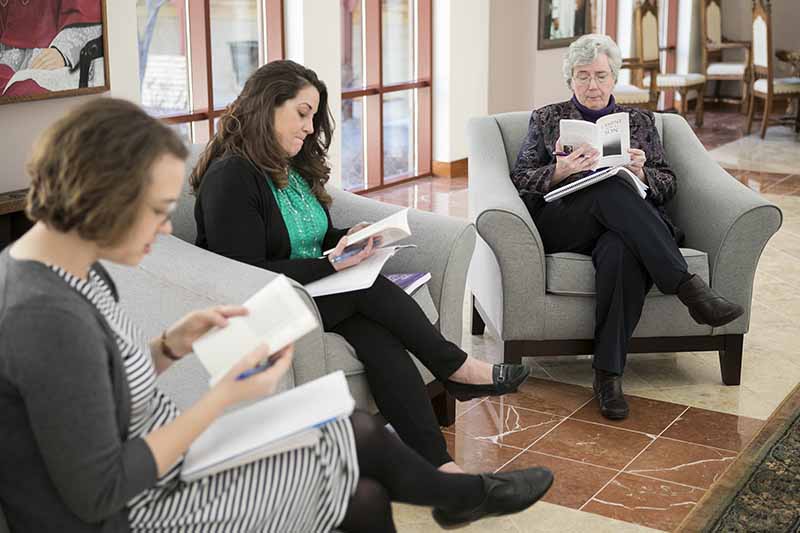Spiritual Reading
Fr. Adrian Burke, OSB
Thursday, February 29, 2024

During this time of Lent, each monk is to receive a book from the library and is to read it straight through. These books are to be distributed at the beginning of Lent.
Rule of Saint Benedict 48.15-16
Lent is a time for introspection; a special season of preparation leading up to the high point of the whole Christian year, holy Easter, when the disciples of Jesus remember in a profound and solemn way the resurrection of Lord and Savior from the dead. Jesus’ resurrection is a gift from God that opens to each one of us the possibility of becoming “children of God”, transfigured from within, so that our “fleshly”, mortal existence can become “divinized” by God, and eternal.
Part of our Easter preparation is to intensify our commitment to spiritual reading. This kind of reading is not for entertainment, though, to be sure, I love to read novels and stories that transport me out of my ordinary surroundings to experience an imaginative adventure. This is good, but spiritual reading is formational, not entertainment – nor is it “educational” exactly. Rather, it is a way for us to open our hearts to God’s Spirit teaching us something important about ourselves. Spiritual reading is intended to support a process of inward examination, to see by the light of God’s grace what it is I may need to let go of, surrender, be healed of, or patiently endure to become more like Christ – a truer disciple of Jesus.
This year, Abbot Kurt gave to each of us monks a little book by Thomas Merton, Praying the Psalms. Reading this book “straight through”, but in a slow and reflective manner, will hopefully deepen our appreciation of the work we do in our church when we gather to chant the psalms in praise of God. It will help me discern how to incorporate the Psalms into my life and to allow these sacred texts to shape me and support my spiritual growth.
Spiritual reading is vital to our way of life as monks. It’s fitting that the Rule mentions Lenten spiritual reading in the chapter on “manual labor,” just prior to the chapter on Lent, because this kind of reading is a “labor of love” that we do in collaboration with grace that shapes us into a unique likeness of Christ, an image of the invisible God. (Gen 1:27; Heb 1:3; Col 1:15)
I encourage those interested in intensifying your spiritual lives this Lent to take up spiritual reading to supplement your prayer and aid you with insight given by the light of grace.